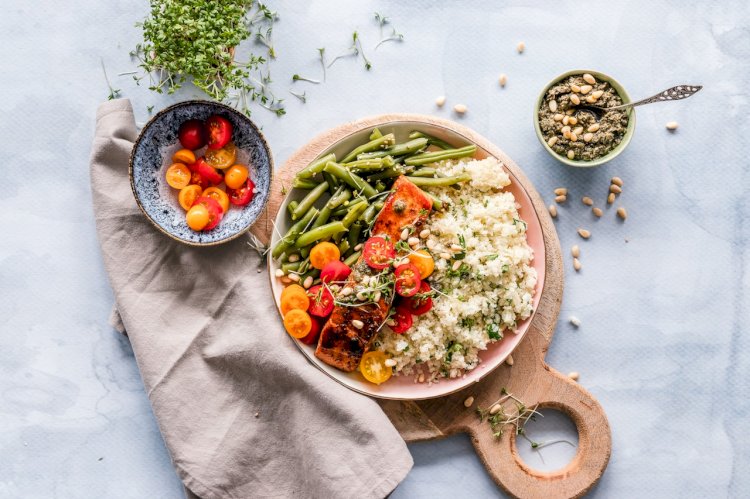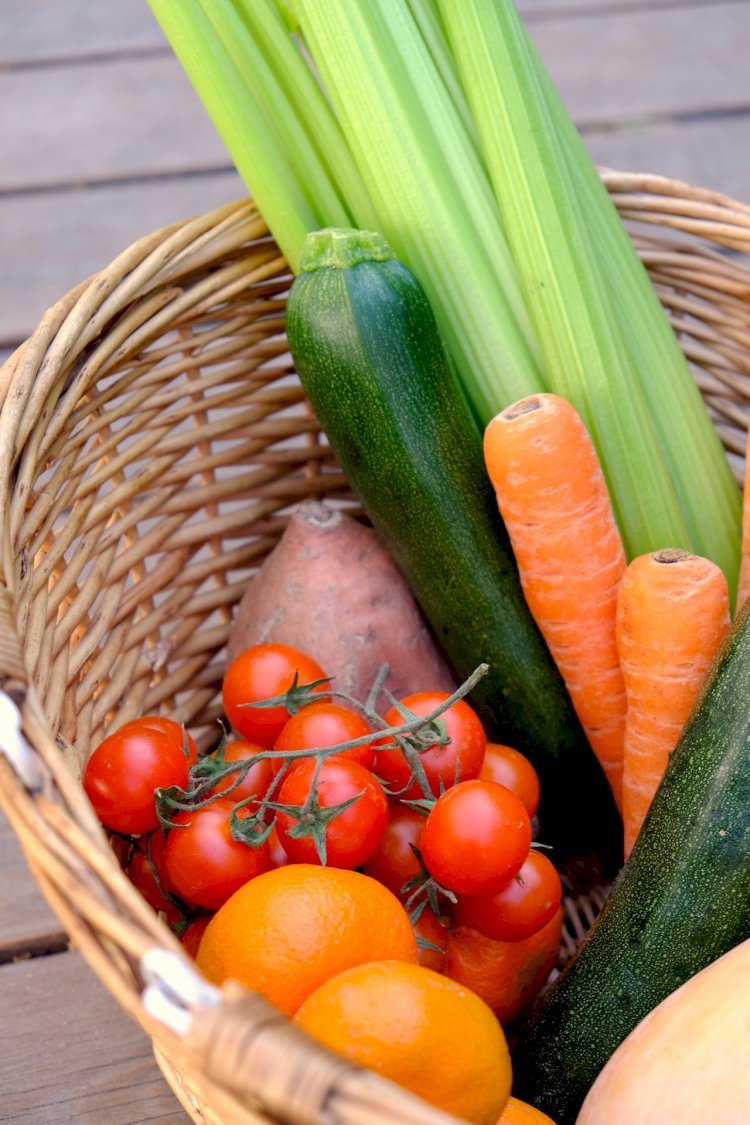Food waste solutions for busy living!
Learn ways to reduce food waste that benefit the planet and our health. Save your time and energy with a healthy meal planning system organizing your meals for the week.
Food waste is not something we may think about often, but should be a consideration when thinking about meals for the week.
Planning ahead can help keep your food budget on track and minimize excessive food waste.
If you’ve ever tossed out a container of yogurt that’s approaching its end date, discarded veggies that have gone limp, or thrown out a salad that’s just starting to turn a bit brown around the edges, you’re not alone. While food waste is a worldwide phenomenon, the U.S. is a big contributor.
Would you believe me if I told you that food takes up more space in U.S. landfills than any other type of waste?
I'm sorry to say it's true, unfortunately. Right here at home up to 40 % of the entire U.S. food supply goes to waste. That's almost 20 lbs of food per person every month.
Imagine the time and money that could be saved if more people changed their habits and implemented the tips/strategies shared below.
Boost your health while saving time, and money!
Let's dive a bit deeper into the benefits of reducing food waste...
Save time
Leftovers may not be the most glamorous meals, but they allow you to cook (or buy) once and eat twice. This is a better use of your time and energy. It will save you thinking up meals everyday, preparing, cleaning up, etc. It will save you money ordering take out on busy nights.
Spending less precious time on multiple new meals is a stress reliever too!
Save money
The amount of produce wasted by an average American family of four costs about $1,600 per year. Imagine what you could do with that amount of money by simply buying only what you need and are going to eat, without unnecessary excess.
Save the environment
Throwing food away wastes not only the water and energy that went into all the steps needed to get you the food, but once in a landfill, releases greenhouse gasses like carbon dioxide and methane.
The U.S. Environmental Protection Agency (EPA) estimates that 95 % of discarded food ends up in landfills instead of compost.
So what's the best way to get started reducing food waste?
Freeze food and enjoy leftovers! Safely store uneaten food in a sealed container in your fridge or freezer, and enjoy it another time as a leftover. Super busy familes will find this a time and money saver.
Know your dates
One of the biggest reasons people throw food away because they think it is spoiled. The date the food goes bad can be confusing because manufacturers may use different dates on their packages.
"Best if used by" describes the quality of the food, not it's safety. The food may not taste or perform as expected but it's still safe to consume as long as it was stored properly.
"Expires on" is most reserved for infant formulas which should not be used beyond that date.
Try "imperfect" or "ugly" food
Did you know food is sometimes dumped because it doesn't look perfect enough? Some markets package up food that might not be perfect and sell them at lower prices.
Many imperfect foods can be used in smoothies, soups, and baking.
Share extra food
Find a food bank in your area and see what kind of foods they accept. If you have extras, simply donate them.
Optimize your fridge and freezer
Regularly check your fridge and freezer keeping an eye on food that may be approaching an expiration. Try to use those first in your meal planning.
Compost whenever you can
Composting is a huge area of opportunity since it is estimated only 4.1 % of wasted food is composted. This can reduce garbage in the landfill.
Use a grocery list and meal plan
When you plan out meals and stick to your grocery list, you are less likely to over buy and make too much food. Buy only what you need and plan to use for the day and week.
Having a plan for your meals, whether you plan it yourself or invest in one that works for you is a great way to reduce food waste.
By using a meal plan to reduce the amount of excess food you buy will cut down on food waste at the source.
Meal planning can help you create meaningful and sustainable changes for your health too.
Research has found that those who planned more of their meals lost more weight than those planning fewer meals.
If you don't have the time or energy to plan your meals for the week, check out the Nutopia meal planner with healthy and delicious recipes.
The recipes have been created by Registered Dietitians with taste, and health in mind. The planner allows you to create a shopping list too, to further save time and minimize food waste.
You can signup for a free trial here. Happy cooking!
Nutopia, LLC- Nutrition "Simplified & Personalized"
Click Here To See More


















